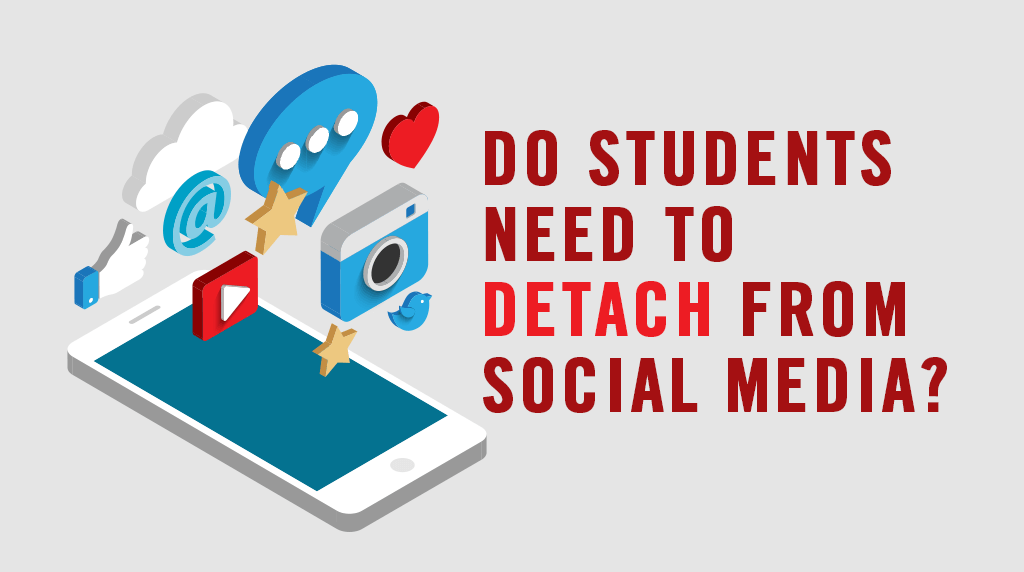
Do Students Need To Detach from Social Media?
Teenagers really like their phones and social media. Maybe you've noticed. ;)
Whether it is Instagram, Facebook, or the new "social media app" du jour, teenagers are looking at screens of some type for more than 7 hours daily. That means that for the majority of the time that they are awake, they are peering into some sort of device, and often while doing other things. (Research shows that when we — teens and adults alike — claim to be “multitasking” we’re really not doing anything well.) Thus, it seems that with all things we Christ-followers must face daily, social media requires wisdom, discipline, and discernment, or we will turn it into an idol.
That's right. I said "an idol." When God issued to Moses the Ten Commandments, He put worship of Him at the exclusion of all other gods first, because He knew that we were created for worship. Sadly, He knew that we would often turn to other “less wild lovers” (I borrow this beautiful phrase from John Eldridge and Brent Curtis from their book, The Sacred Romance: Drawing Closer to the Heart of God.) that do not demand obedience and submission, but rather provide temporary pleasure or freedom from pain and suffering. Sounds a lot like how our students engage with social media, doesn't it?
So how should we handle social media and students' attachment to their devices? (And if we’re honest, these same thoughts apply to many of us, too.)
Here are some thoughts:- It’s foolish to suggest abstinence from social media. The world is increasingly wired and digitized and it will only become more so. What’s needed is good old-fashioned manners, boundaries, and etiquette. Often, when students are handed a smartphone, tablet or media player, they are not issued “rules.” When they see adults yammering away on their phones while in line at Subway, they mimic what they see. We must demand that students show us their eyes and not the glowing reflections of a device’s light on their face. As a media scholar, it horrifies me to see someone in a darkened movie theater, presumably having paid to be there, and gazing into their 4-inch device and avoiding the 100-foot screen before them, complete with 7.1 surround sound! We need to be told to stop; be still and put down the device. Engage with your fellow man and learn to communicate the old-fashioned way, by talking, listening and being able to respond. Adults, too.
- While “limits” on daily use and exposure to social media is the primary instruction that teens receive (if any!) from their parents and teachers, it is insufficient. Students like to ask “why” as any youth leader or parent will attest. Thus, the “why” is simple; social media is not “social” at all, it is solitary and isolating. Jesus called 12 disciples to travel, learn and live with him. He could have gone it alone, but he chose the 12 to observe His teachings, love, grace, miracles and ultimate sacrifice so that they would “go and do likewise.” We have to be “present” in order to observe the world around us. We are greatly unobservant when our attention is buried in a digital device, glowing before us and always offering us a never-ending, always “just around the bend” adventure.
There is no end to social media’s lure, so we must not journey toward it. We must choose God’s discipline, obedience, and patience. The “less wild lover” of social media only responds to our input and desire; it does not teach us to love God with all our heart, soul, mind and strength, and to love others.
Only Jesus can do that. And He’s not online.
Note: Last updated March 2018











Leave a comment